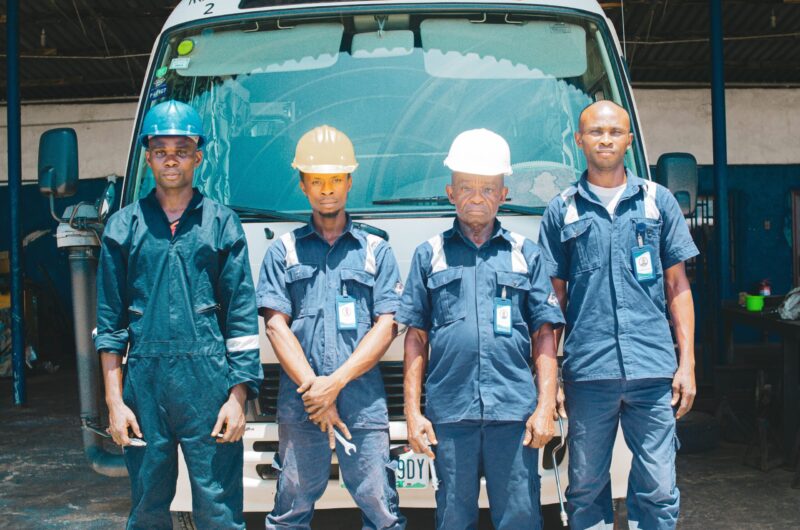Motorcycle repair and maintenance requires precision and technical know-how, skills that a reputable technician must possess. Behind the scenes, a well-skilled motorcycle technician ensures your bike is operating at its optimal state and power. Whether it’s diagnosing complex issues, fine-tuning engines, or conducting routine maintenance, the role of a motorcycle technician is multifaceted and requires a unique set of capabilities. In this blog post, we’ll delve into the must-have skills that can propel a motorcycle technician to excellence in their craft.
Technical Proficiency
At the core of a motorcycle technician’s skill set is technical proficiency. A deep understanding of motorcycle systems, engines, transmissions, and electrical components is non-negotiable.
Technicians must be adept at detecting problems, diagnosing issues, and conducting repairs with precision. This skill is developed through a combination of formal education, on-the-job training, and hands-on experience.
Ability to Diagnose Mechanical Issues
The ability to diagnose and troubleshoot issues is a skill for any proficient motorcycle technician. Identifying problems, whether through customer descriptions or firsthand observation, requires a systematic and logical approach.
Poor technicians have caused more harm than good by diagnosing nonexistent technical problems. Diagnosing electrical, mechanical, or performance-related issues demands a keen eye for detail and an exhaustive understanding of how various components interact.
Ability to Solve Problems
Every motorcycle that’s taken to a garage or workshop presents a unique problem for technicians to solve. An effective motorcycle technician possesses a strong problem-solving ability.
They can analyze complex issues, devise solutions, and implement repairs efficiently. Problem-solving skills are honed through experience, continuous learning, and a passion for unraveling the mysteries of motorcycle mechanics.
Mechanical Proficiency
Working with motorcycles is a hands-on endeavor that demands effective mechanical know how. Technicians need the ability to manipulate tools, handle delicate components, and perform intricate tasks.
Whether it’s adjusting valves, rebuilding an engine, or fine-tuning carburetors, a steady hand and precise movements are essential.
Attention to Detail
Motorcycle technicians must pay meticulous attention to every aspect of their work. Bikes have intricate working designs that one can’t ignore. From torque specifications to the alignment of components, the smallest changes can have significant consequences.
Attention to detail ensures that repairs are thorough, and motorcycles leave the workshop in optimal condition.
Customer Service Skills
Customer service skills go beyond the office space or formal settings. Motorcycle technicians often interact directly with customers and they should have the right communication traits.
Effective communication and good customer service skills are invaluable. Technicians must be able to explain complex issues in layman’s terms, provide accurate estimates, and establish trust with clients. A positive customer service experience contributes to customer satisfaction and fosters long-term relationships.
Continuous Learning and Adaptability
The automotive world is ever evolving and motorcycles come with new models, technologies, and innovations. A successful motorcycle technician recognizes the importance of continuous learning and adaptability.
Staying abreast of industry trends, learning from peers, attending workshops, and pursuing formal technical education for those who can ensures that technicians remain at the forefront of their field.
Time Management
In a busy workshop, time is important, given the number of clients who have needs to be addressed. Motorcycle technicians must efficiently manage their time to ensure that repairs and maintenance tasks are completed within reasonable timeframes.
Effective time management not only boosts productivity but also contributes to customer satisfaction by minimizing downtime for their motorcycles.
Communication Skills
Clear communication is key in a workshop environment. Motorcycle technicians need to convey information effectively to colleagues and customers. Whether discussing diagnostic findings, explaining repair procedures, or coordinating with team members, strong communication skills foster a collaborative and efficient work environment.
A good communicator is a good listener, and a technician who listens is always on par with the customer’s demands.
Knowledge of Safety Procedures
Working with motorcycles involves inherent risks, and safety should always be a top priority. A skilled motorcycle technician is well-versed in safety procedures, including the proper use of personal safety tools like gloves, safe handling of tools and chemicals, and adherence to workshop safety protocols.
Prioritizing safety not only protects the technician but also contributes to a secure working environment. Motorcyclists ultimately prefer a safe, organized and effective garage space.
Computer Literacy
Although many technicians may find digital skills irrelevant, especially in Kenya, modern motorcycles have started penetrating the local market. To be ahead of the pack, motorcycle technicians must be computer literate to effectively navigate newly developed electronic service manuals, diagnostic tools, and software interfaces.
Familiarity with digital systems enhances efficiency and enables technicians to leverage the latest diagnostic technologies. Further, local technicians with this skill will carve out a niche for themselves in specific and up-to-date clients.
Business Know-How
For technicians aspiring to advance in their careers or even open their motorcycle repair businesses, business acumen is a valuable skill. Understanding basic business principles, including inventory management, customer relations, and financial considerations, equips technicians with the knowledge needed to thrive in the entrepreneurial aspects of the motorcycle repair industry.
Business skills also include marketing, majorly digital marketing, which builds the technician’s online presence and network.
Physical Fitness
The physical demands of working in a motorcycle workshop should not be underestimated. Technicians may be required to lift heavy parts, maneuver motorcycles, and spend long hours on their feet.
Maintaining physical fitness contributes to endurance and ensures that technicians can handle the physical demands of their profession.
Teamwork and Collaboration
In a workshop setting, teamwork is essential. Technicians often collaborate with colleagues, service advisors, and other professionals to deliver comprehensive solutions.
The ability to work harmoniously as part of a team ensures that tasks are efficiently delegated, expertise is shared, and the overall workflow is streamlined.
Regulatory Compliance Knowledge
Motorcycle technicians must be aware of and adhere to industry regulations, safety standards, and environmental guidelines. Understanding and complying with regulatory requirements ensures that repairs are conducted ethically and responsibly, contributing to the overall integrity of the motorcycle repair profession.
Becoming a skilled motorcycle technician is a journey that combines technical expertise, problem-solving abilities, and a commitment to continuous improvement. The must-have skills outlined in this blog post are the building blocks for success in the dynamic and rewarding field of motorcycle repair. Whether working in a bustling workshop, pursuing entrepreneurship, or contributing to advancements in motorcycle technology, mastering these skills equips technicians to navigate the intricate landscape of motorcycle mechanics with confidence and proficiency.


